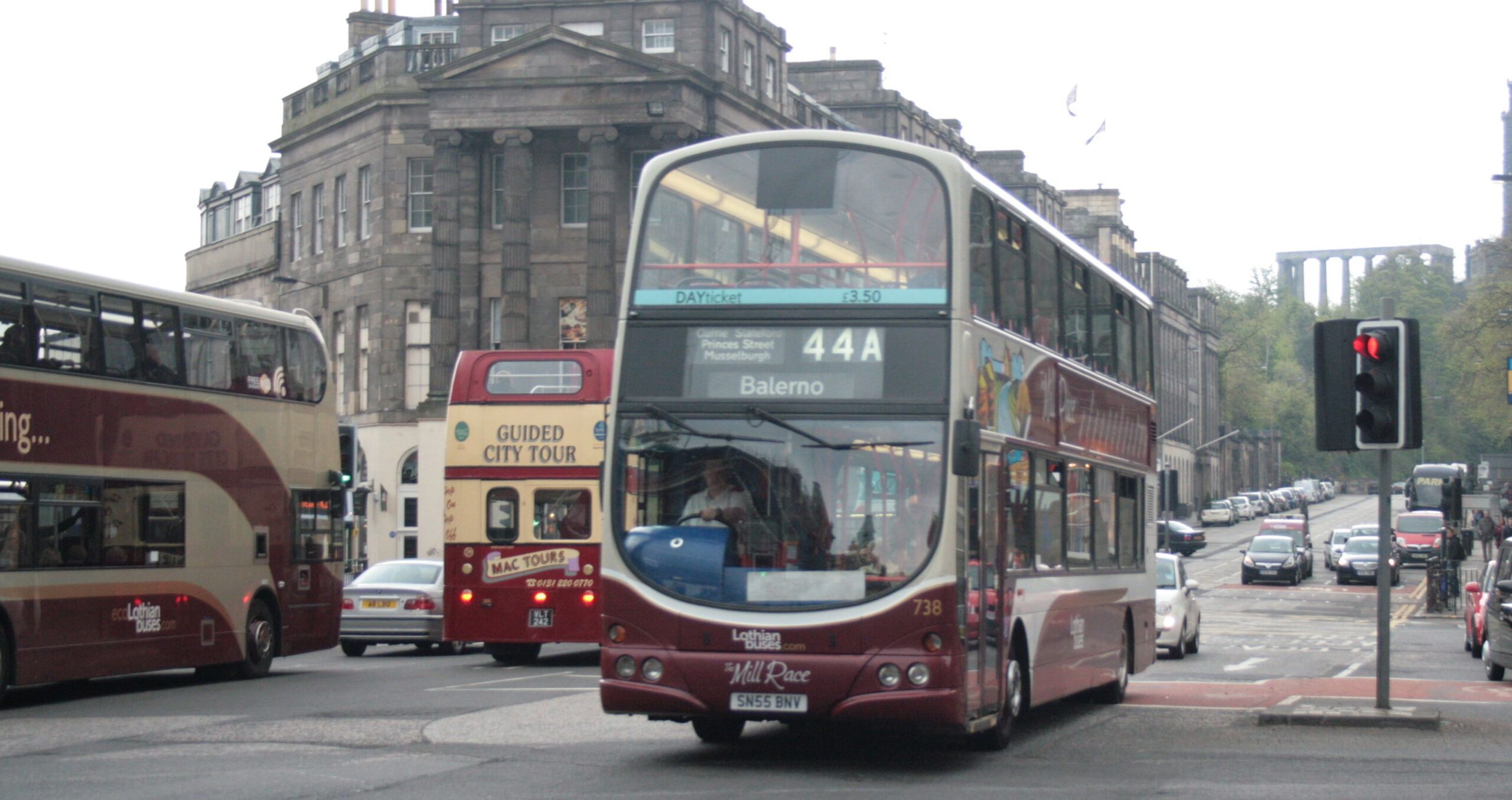Nine points arguing the case for free public transport
- Free fares would be the biggest single pro-environment policy enacted by any national government anywhere on the planet, dramatically slashing car use and CO2 emissions.
- Free fares would be the biggest anti-poverty, pro-social inclusion policy enacted in Scotland, or anywhere else in the UK. It is mainly people on low incomes who rely on public transport
- Free fares would cut the number of road accidents, reducing human suffering and relieving pressure on the NHS and the emergency services. The Scottish Executive estimates that road accidents cost £1.4 billion a year to the Scottish economy. (On an average day in Scotland there is one fatal road accident; another 8-10 involving serious injury; and 250-300 minor accidents. The vast majority involve cars.)
- Free fares would be help to reduce the levels of asthma and other respiratory illnesses, which have risen steeply in line with the expansion of road traffic
- Free fares would potentially increase the spending power of over a million workers by between £40 and £100 a month, boosting the overall economy.
- Free fares would increase business efficiency and productivity: the CBI estimates that traffic congestion costs business across Britain between £15 and £20 billion a year.
- Free fares would be a major tourist attraction, bringing hundreds of millions of pounds into the Scottish economy every year from increased visitor numbers. An increase in tourism of just 20 per cent would bring an extra £1 billion into the Scottish economy.
- Free fares would attract worldwide support, especially from the global environmental movement, and would bring pressure to bear on governments throughout Europe and the wider world to adopt a similar policy.
- Free fares would reduce Scotland’s reliance on depleting oil reserves; 67 per cent of all oil produced globally is used for transport.
An idea whose time has come
In the early 1980s, the Greater London Council under Ken Livingston slashed fares and began to move towards free public transport. The policy was backed by 71 per cent of Londoners, but was destroyed by the Thatcher government and the Law Lords, backed by the car, haulage and oil industries.
Within a year, ticket prices in London had doubled, car journeys had rocketed and there was an extra 6000 accidents on the city’s roads. A similar policy in South Yorkshire under David Blunkett was similarly torpedoed.
That was before global warming and the dangers of greenhouse gases became widely accepted by scientists. Twenty years on, our towns and cities are heading towards permanent gridlock and scientists are pressing the panic buttons. And the idea of free public transport is starting to make a comeback.
In the Belgian city of Hasselt, which covers an area double the size of Dundee, congestion was eliminated in the late 1980s after the introduction of a totally free public transport system. Within a year, bus passenger journeys rose by 870 per cent and have now increased by over 1000 per cent. In dismal contrast, the Scottish Executive has set a target for an annual increase of one per cent in bus journeys and two per cent in rail journeys.
The Danish government has commissioned a research group to examine the feasibility of a free public transport system (Copenhagen Post November 22, 2006 ).
The Melbourne Age newspaper, edited by Andrew Jaspan (a former editor of the Sunday Herald, The Scotsman and Scotland on Sunday) has called for state-wide free bus travel in Victoria (A radical idea, The Age, May 5 2006)
Matthew Parrish, a Tory MP under Margaret Thatcher, who played a key role in destroying South Yorkshire’s cheap fares policy, now admits he was wrong and has called for London-wide free bus travel: “I was wrong. I have changed my mind… Never mind the ideology, it just makes sense.” (It’s big, it’s red, and it’s free – and it will save London; The Times. May 8 2003)
Visit Scotland (formerly the Scottish Tourist Board) recently published a report which set out the policy implications of global warming by 2015: “In order to reduce dependency upon the car, we will see a number of measures to move people onto public transport. These will include free public transport for all in Scotland, whether this is buses or trains”. (Visit Scotland report: Tomorrow’s World, May 2006)
Photo by: Cal Smith

